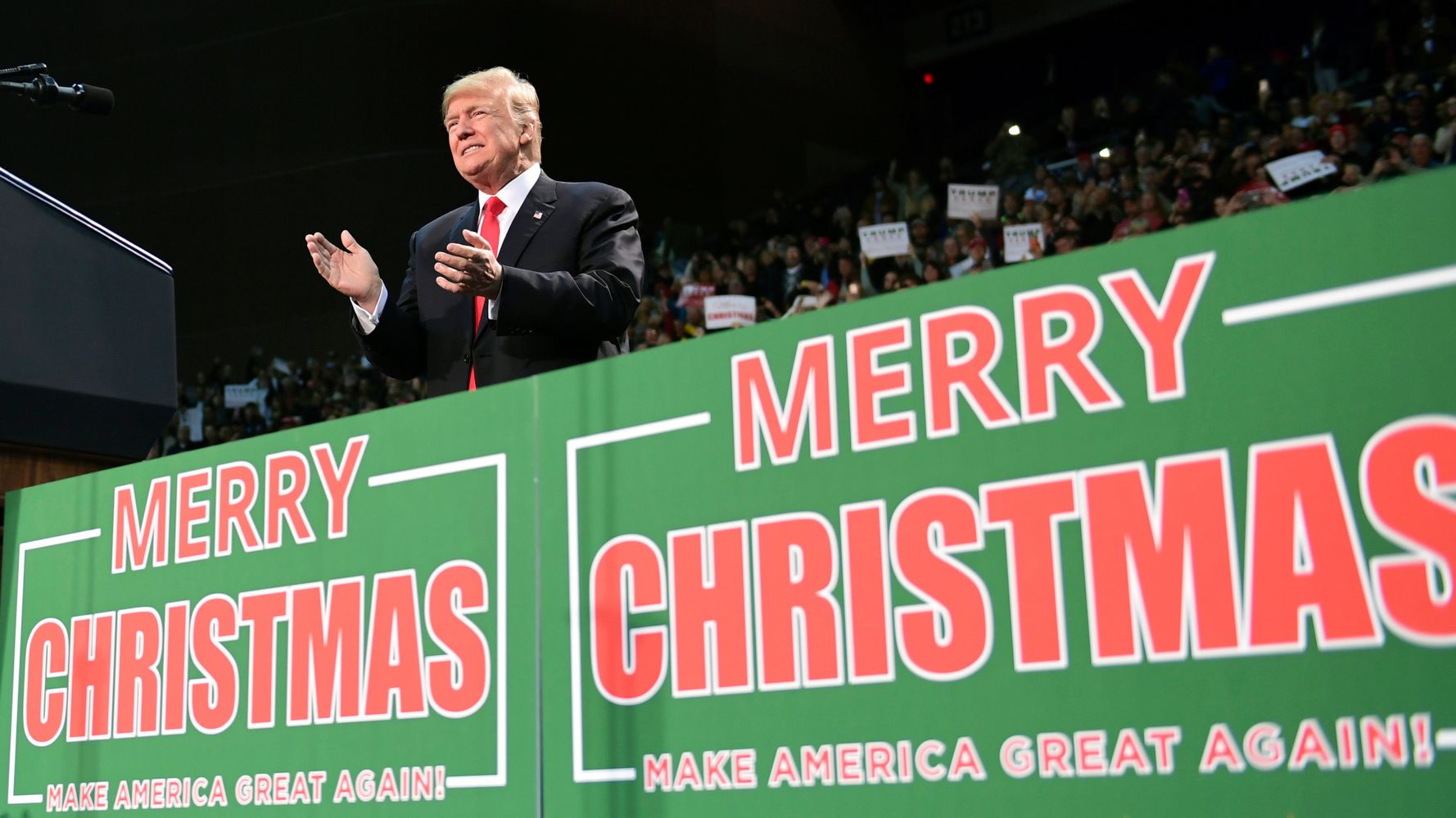[ad_1]
It’s become a U.S. holiday tradition. Every December, many conservative Christian pastors and pundits (and the cable news stations that cater to them) publicly lament secular progressives’ unyielding “War on Christmas.â€
The battles range over many fronts, but the most consistent fight year after year has been over words ― specifically, whether businesses should greet customers with “Merry Christmas†or with the more inclusive “Happy Holidays†or “Season’s Greetings.â€
What motivates Americans to fight so doggedly over the phrasing of holiday salutations? Ironically, many commentators on both the left and right agree: It all has to do with the Christian faith.
To those on the more secular left, the conservative Christian faith of the “Merry Christmas Nazis†demands theocracy, plain and simple. And according to many evangelicals on the right, the fight to “keep the Christ in Christmas†represents Christians’ declaration of their deeper theological commitments. Saying “Merry Christmas†publicly “reminds a hurting world of the greatest gift we can receive in Jesus Christ, and it symbolizes the freedom to celebrate that gift,â€Â said the president of the Family Research Council, Tony Perkins.
As it turns out, they’re all wrong.
Christian theology, identity or faithfulness have nothing to do with an insistence on saying “Merry Christmas.†To be more precise, when we analyzed public polling data, we found that there was no correlation between being an evangelical Christian, believing in the biblical Nativity story, attending church, or participating in charitable giving and rejecting “Season’s Greetings†for “Merry Christmas.â€
In other words, someone showing signs of more devout Christian observance was useless in predicting who would insist on the explicitly Christian greeting.
So what factors did predict it? Being older, being white, and being politically conservative. And more than anything, it’s being a political conservative who is white.
Based on data collected in December 2013 by the Public Religion Research Initiative, our figure below shows the probability that an American will reject salutations like “Happy Holidays†or “Season’s Greetings†in favor of “Merry Christmas†(vertical axis) across values of political conservatism (horizontal axis). The two lines represent whether a respondent is white or nonwhite.

For nonwhites, being politically conservative made almost no difference (notice the flat line). But as white Americans became more conservative politically, the likelihood that they were sticklers about holiday greetings skyrocketed. (We compared our findings with similar PRRI data collected in 2010 and 2016 and, while those data sets did not contain all the aforementioned measures of religious belief and practice that we wished to study, the findings with respect to our figure above were essentially identical.)
What does this tell us? Ultimately, drawing lines in the sand over whether people say “Merry Christmas†over “Happy Holidays†has virtually nothing to do with Christian faithfulness or orthodoxy.  It has everything to do with the cultural and political insecurity white conservatives feel.
As numerous journalists have recently observed, white political and cultural conservatives are becoming a demographic minority. And they know it.
Consequently, public pronouncements about “keeping the Christ in Christmas†or publishing “Naughty or Nice†lists of business who say “Merry Christmas†versus “Season’s Greetings†are about drawing boundaries between “us†and “them,†figuring out who your allies and enemies are. It’s about resisting the decline of a certain kind of cultural dominance.
It should be little surprise then that these sorts of Americans swooned over then-candidate Donald Trump, who promised repeatedly, “If I become president, we’re all going to say Merry Christmas again!â€
Trump even boasted over Twitter last Christmas Eve:
Perkins explained to PBS last year, “Saying merry Christmas has become kind of like a buzzword, a code word that the president tapped into … Is it a huge deal that if you go to a store … that someone says merry Christmas? No, not in and of itself, but [it is] in the context of the bigger issue of what we have seen happening in our culture and our country.â€
Trump, as Perkins pointed out, tapped into fears of waning cultural influence among white conservatives ― fears that their traditional values (“our cultureâ€) and power (“our countryâ€) were under political attack.
This has only been made more explicit to us as we’ve conducted research on Christian nationalism (an ideology that ironically transcends religious affiliations) and support for Trump in the 2016 presidential election.
One white, politically conservative man from the Midwest shared he was pleased with the influence Trump has had on our country because “You couldn’t say ‘Merry Christmas.’ You had to say ‘Happy Holidays,’ right? He put Christ back in Christmas.â€
We beg to differ. Trump was attempting to put something else entirely back into Christmas.
And like Trump, white Americans who demand “Merry Christmas†as the seasonal greeting of choice appear to be far less interested in putting “Christ back in Christmas†and far more interested in putting (or keeping) white conservatives in cultural and political power.
Samuel Perry (@socofthesacred) is an assistant professor of sociology and religious studies at the University of Oklahoma. Andrew Whitehead (@ndrewwhitehead) is an assistant professor of sociology at Clemson University.
Calling all HuffPost superfans!
Sign up for membership to become a founding member and help shape HuffPost’s next chapter
[ad_2]
Source link





